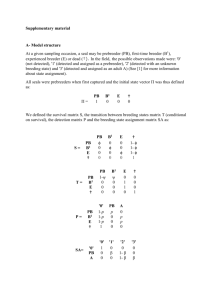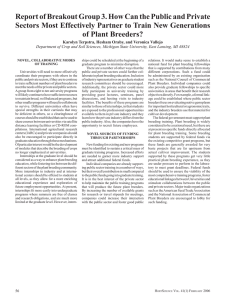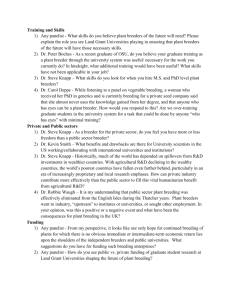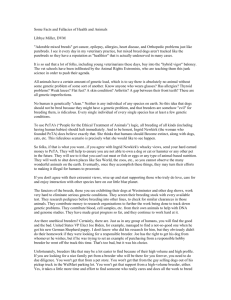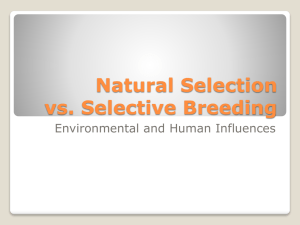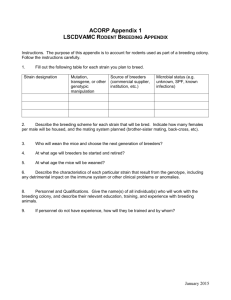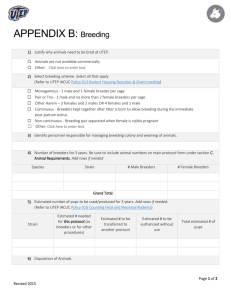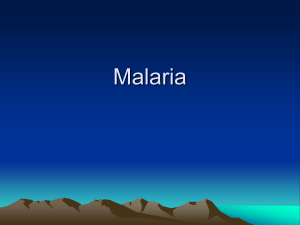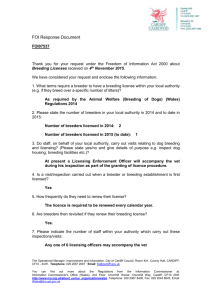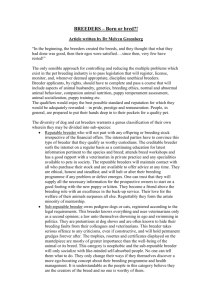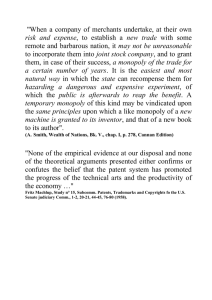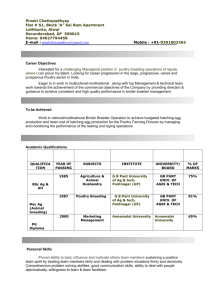Training and Skills What skills do you believe plant breeders of the
advertisement
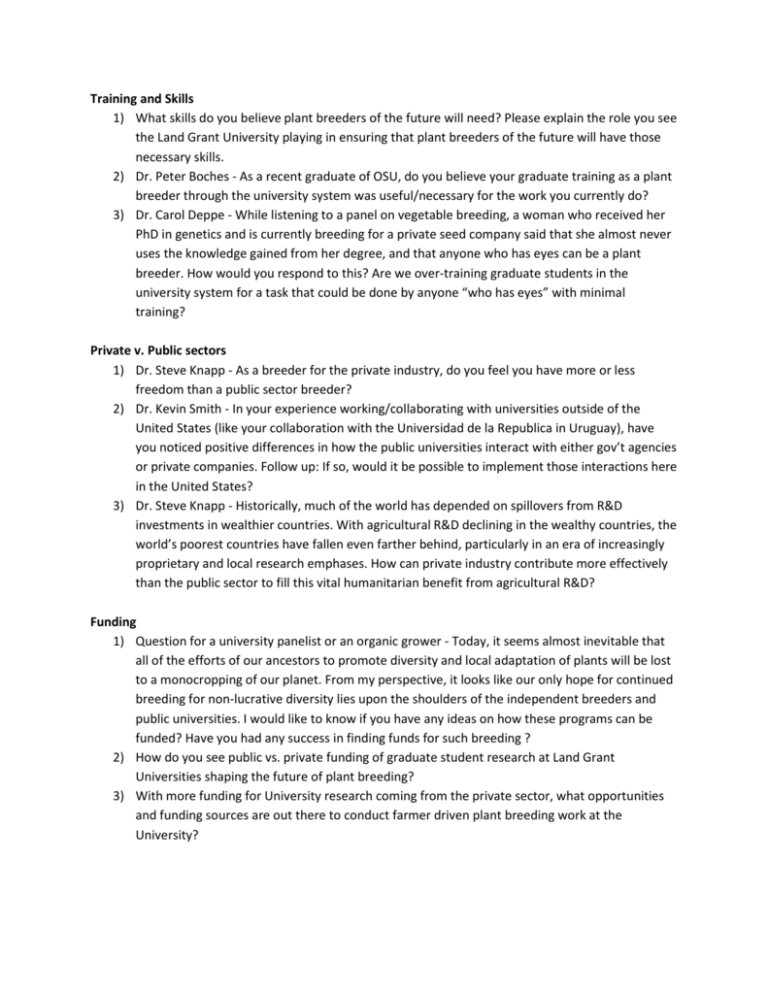
Training and Skills 1) What skills do you believe plant breeders of the future will need? Please explain the role you see the Land Grant University playing in ensuring that plant breeders of the future will have those necessary skills. 2) Dr. Peter Boches - As a recent graduate of OSU, do you believe your graduate training as a plant breeder through the university system was useful/necessary for the work you currently do? 3) Dr. Carol Deppe - While listening to a panel on vegetable breeding, a woman who received her PhD in genetics and is currently breeding for a private seed company said that she almost never uses the knowledge gained from her degree, and that anyone who has eyes can be a plant breeder. How would you respond to this? Are we over-training graduate students in the university system for a task that could be done by anyone “who has eyes” with minimal training? Private v. Public sectors 1) Dr. Steve Knapp - As a breeder for the private industry, do you feel you have more or less freedom than a public sector breeder? 2) Dr. Kevin Smith - In your experience working/collaborating with universities outside of the United States (like your collaboration with the Universidad de la Republica in Uruguay), have you noticed positive differences in how the public universities interact with either gov’t agencies or private companies. Follow up: If so, would it be possible to implement those interactions here in the United States? 3) Dr. Steve Knapp - Historically, much of the world has depended on spillovers from R&D investments in wealthier countries. With agricultural R&D declining in the wealthy countries, the world’s poorest countries have fallen even farther behind, particularly in an era of increasingly proprietary and local research emphases. How can private industry contribute more effectively than the public sector to fill this vital humanitarian benefit from agricultural R&D? Funding 1) Question for a university panelist or an organic grower - Today, it seems almost inevitable that all of the efforts of our ancestors to promote diversity and local adaptation of plants will be lost to a monocropping of our planet. From my perspective, it looks like our only hope for continued breeding for non-lucrative diversity lies upon the shoulders of the independent breeders and public universities. I would like to know if you have any ideas on how these programs can be funded? Have you had any success in finding funds for such breeding ? 2) How do you see public vs. private funding of graduate student research at Land Grant Universities shaping the future of plant breeding? 3) With more funding for University research coming from the private sector, what opportunities and funding sources are out there to conduct farmer driven plant breeding work at the University? Technology 1) Dr. Robbie Waugh - Genomics and informatics has sped up breeding technology tremendously with systems such as Marker Assisted Selection. Although this technology is extremely beneficial to our field, I am concerned that breeders are losing touch with their material in the field. How can breeders stay on the forefront of technology, while also maintaining important field technique. University Roles 1) Dr. Alan Kapuler - In several interviews in the past few years, you state that there is a problem with the way of breeding now, and that in the past “...schools would hire people interested to make crops for the local area so the local self sufficiency was enhanced, and so there was more diversity in the local food system. That’s broken down." Where do you see the root of this problem? Also, in today's world, what are universities' and public sector roles in breeding, in your opinion? 2) Dr. Steve Knapp - Monsanto's business model invests heavily in research and development, and recoups the expenses through the use and enforcement of biological patents. Do you think universities such as OSU would benefit from adopting this model to fund breeding programs? Other 1) Dr. Alan Kapuler or Dr. Carol Deppe - We keep hearing that the population is growing and how big of a challenge it is going to be in the future to feed the planet. How large of a role could the independent breeder potentially play in regards to organic farming and global food security?
